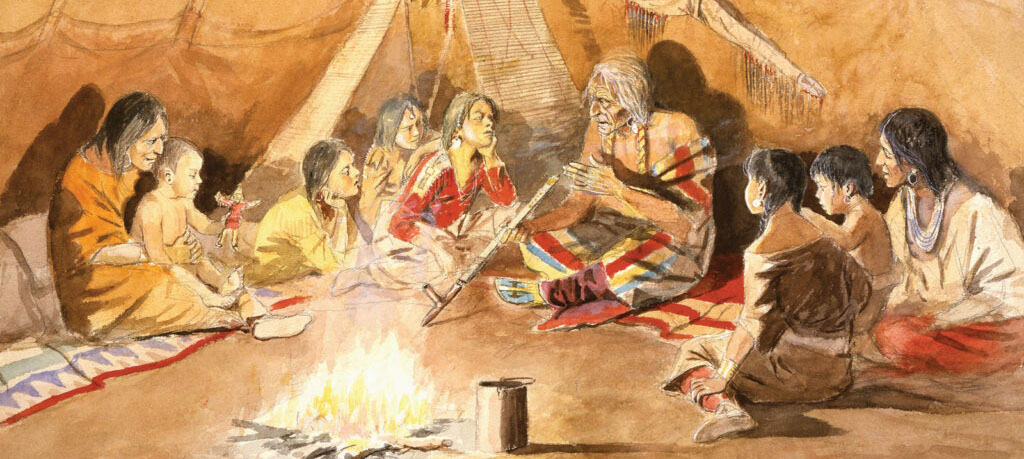
Stories and Storytelling
The Evolution of Storytelling

The Evolution of Storytelling
Stories work with people, for people, and always stories work on people, affecting what people are able to see as real, as possible, and as worth doing or best avoided. What is it about stories—what are their particularities—that enables them to work as they do?
The First Stories
The world we experience as ‘out there’ is actually a reconstruction of reality that is built inside our heads. It’s an act of creation by the storytelling brain.
The Oral Tale
For most of our human history storytelling was oral. Myths were spoken or sung by diverse storytellers who could select and modulate their narrative to best suit a given audience, emphasizing some aspects and ignoring others.
The Written Word
Originally scribes used this new technology only for book-keeping, recording inventory, or for the equivalent of today’s text messages. But once the first scribes in Ur realized that writing could be used to record their most valued epic stories, their excitement likely matched our own when portable computers came on the scene.
Meta Storytelling
Specific stories survive because they hold an inner significance which is rarely glimpsed consciously, but which nevertheless acts powerfully upon our minds.
The Science of Storytelling
Stories are actually a form of technology. They are tools that were designed by our ancestors to alleviate depression, reduce anxiety, kindle creativity, spark courage and meet a variety of other psychological challenges of being human.
Teaching Stories

A Unique Form of Literature
Many books of quite innocent-appearing stories were written to provide a vehicle for the traditional esoteric psychology. Often they have been mistaken for either literal history or trivia.
The Teaching Story
Teaching stories, which might appear to be mere fairy tales or myths or jokes, are in fact important tools that may well have survived over generations mainly because of their appeal to people at large for entertainment or other superficial reasons.

